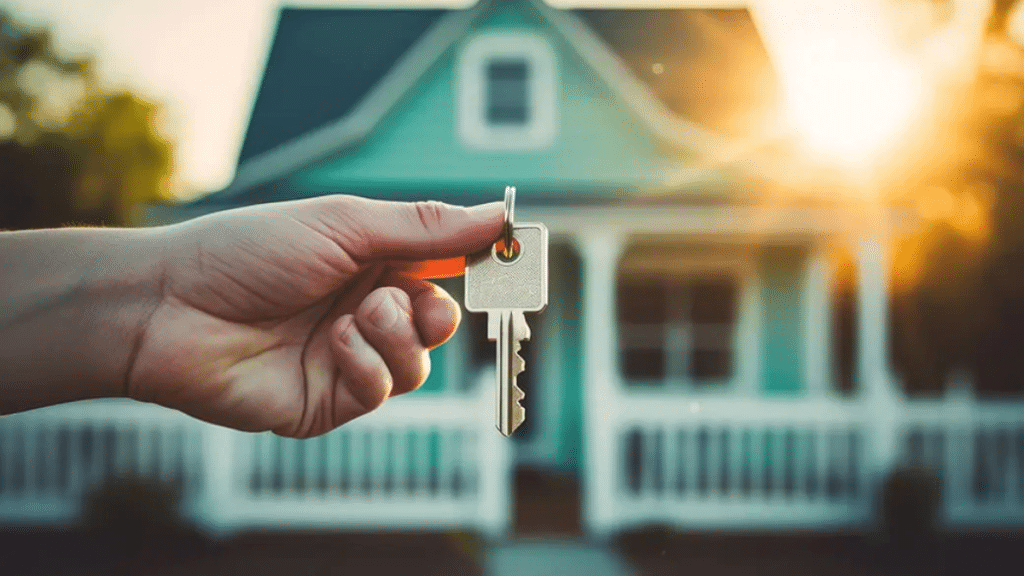Becoming a homeowner for the first time is a big moment. It feels great to have a place you can call your own. But owning a home also means you now have more things to take care of. Many people get excited about decorating and moving in, but forget the daily duties that come after.
One of the smartest moves you can make early on is to look into home maintenance plans. These can help you stay on top of small tasks before they turn into big, expensive problems.
This guide shares the most important tips for first-time homeowners. It will help you take better care of your home and avoid common mistakes.
Know That Everything Is Now Your Job
When you rented, your landlord handled problems. If something broke, you just made a call. But now, the roof, plumbing, and heating are your responsibility. If anything stops working, you have to fix it.
That is why it is important to be ready. When you take care of small issues early, they don’t become bigger and more costly later on.
Walk Through Your Home With Fresh Eyes
Before settling in, take time to look at every part of your home. Check the walls, floors, and ceilings. Open and close every window and door. Turn on all the lights and faucets.
Outside, look at the roof, yard, and walls. Make a list of anything that looks off or needs fixing. Catching small problems now can save you trouble later.
Create a Simple Home Care Routine
Home care is easier when you break it down by season. Make a list of what needs to be done each time of year.
For example:
- Spring: clean gutters and check the roof
- Summer: service your cooling system
- Fall: seal windows and clean heaters
- Winter: check for frozen pipes and remove snow buildup
To make life easier, you can also use home maintenance plans that remind you when to check or fix things.
Make Your Home Safe First
Safety comes first. Test your smoke and carbon alarms. Change the batteries if needed. If the alarms are more than 10 years old, it’s best to replace them.
Also, make sure you have a working fire extinguisher in the kitchen. If you do not have one, buy one now. These small steps can save lives during an emergency.
Learn Where Important Things Are
Do you know how to shut off the main water supply? Or where is your fuse box ? These are things every homeowner should know.
If there’s a water leak or power issue, you need to act fast. Take a walk around your home and make a note of these spots. Label them if it helps.
Set Money Aside for Repairs
Even well-cared-for homes need repairs. Pipes can leak. Appliances can stop working. Having money saved for these times will help you stay calm.
Try to set aside a small amount each month. This home emergency fund can help you fix things quickly without extra stress.
Take Care of Your Heating and Cooling
Your heating and cooling systems need regular care. Change the filters every one to three months. Have a pro check the system at least twice a year.
Doing this helps the system run smoothly and saves money on energy bills. A clean filter also improves air quality in your home.
Watch Out for Water Problems
Water damage is serious and costly. Check under sinks, behind toilets, and around washing machines for leaks. If you find one, fix it right away.
Make sure the land around your home slopes away from the walls. This keeps rainwater from seeping inside. Also, make sure your gutter pipes lead water far from your home.
Keep Bugs and Pests Away
Insects and small animals can sneak in through small cracks. Check doors and windows to make sure they close tightly. Seal any openings you find.
Also, keep your kitchen clean. Store food in closed containers. Take out the trash regularly. These simple habits will help you avoid pests.
Keep Track of What You Fix
Start a small home folder or binder. Keep records of what you fix and when. Save receipts from repairs or new items. Write down when you change filters or clean the gutters.
Also, keep the contact info of local plumbers, electricians, and handymen. If something breaks, you can find help quickly.
Think Ahead and Stay Organized
Being a homeowner means thinking ahead. When you stay organized and plan small tasks in, your home stays in good shape. Use calendars or reminders if needed.
Many first-time owners use home maintenance plans to help them stay on track. These plans offer reminders, checklists, and services that make life easier.
Final Thoughts
Owning a home is a big joy but also a big duty. There are many things to learn. Start simple. Focus on the small tasks. Keep your home clean, safe, and in good shape. It may feel like a lot in the beginning. But with good habits and a bit of planning, you will feel more confident each day. And when you stay ahead of problems, your home becomes a place of comfort and peace for many years to come.

